#super mainstream and palatable for the radio
Text
im crying someone said "listen to machine girl" on a post saying nin isnt weird offputting music. Dude machine girl is practically the lofi of hardcore. Also have you heard anything that isn't Closer
#i hate being autistic im proving the point but nins demos and eps are interesting and weirder than their Top Radio Hits.#its still not the harshest thing ive listened to by far i think u can start with likeee#uniform and the body maybe and then go deeper from there if u actually want Noise music bc nin is and has especially become#super mainstream and palatable for the radio#i have personal beef with mcr fans sorry not even because i think the music is bad i just dislike them as people#NIN ISNT MORE UNDERGROUND OR ANYTHING THATS INSANE BUT I JUST DONT LIKE MCR NOR THINK THEYRE ON THE SAME WAVE AS NINE INCH NAILS
5 notes
·
View notes
Video
youtube
This week on Great Albums: a fresh look at quite possibly the 80s’ most hated band, A Flock of Seagulls! Spoiler: their music is good, people in the 90s and 00s were just mean. If you want to find out more about how having the absolute best hair in the business ended up backfiring on these poor sods, look no further than my latest video. Or the transcript of it, which follows below the break!
Welcome to Passionate Reply, and welcome to Great Albums! Today, I’m going to be diving into a discussion of quite possibly the most derided and lambasted music group of the 1980s: A Flock of Seagulls. With a strange name, a perhaps painfully stylish aesthetic, and equally trendy and of-the-moment music, that was, for a time, inescapable in popular culture, their legacy forms a perfect target for the ridicule all popular things must face in due time. But even moreso than that, I think A Flock of Seagulls have become not only a punchline in and of themselves, but also a summation of everything that was dreadful and excessive about the early 1980s, with its “Second British Invasion” of synthesiser-driven New Wave. I can think of no better example of this kind of abuse than a famous line from the 1999 comedy film, Austin Powers: The Spy Who Shagged Me. The film is largely a love letter to the 1960s and its Mod aesthetics, and the protagonist, a super-spy unfrozen from this era in time, dismisses the history and culture of the 1970s and 80s as nothing more than “a gas shortage, and A Flock of Seagulls.” But at the time of this writing, we’re about as far away from Austin Powers as the film was from the release of this album, the band’s 1982 debut LP, so I think it’s been long enough that we can start to re-evaluate A Flock of Seagulls’ rightful place in music history.
While this self-titled album was the group’s first long-player, their first release was the 1981 single “It’s Not Me Talking.” Notably, this track was actually produced by the legendary Bill Nelson, who also released it on their behalf via his personal label, Cocteau Records. Ever since discovering this for myself, I’ve found the connection between Nelson and A Flock of Seagulls fascinating, and also satisfying. Despite the gulf between their respective reputations, I do think their work has a lot in common, at the end of the day: swirling washes of synth disrupted by screaming guitars, not to mention that shared interest in Midcentury rock and roll aesthetics.
Music: “It’s Not Me Talking”
These two acts would, of course, go their separate ways shortly after, and they ended up in completely opposite camps, with Nelson becoming a cult favourite with little crossover success, and A Flock of Seagulls going on to create what is, undoubtedly, one of the most iconic songs of the entire decade.
Music: “I Ran”
What does one even say about a song like “I Ran”? Over the years, it’s certainly gotten somewhat overplayed, but I can’t really hold that against it. It’s just a damn good song. Both ethereally menacing as well as catchy and rather accessible, “I Ran” takes the atmosphere suggested by “It’s Not Me Talking” and kicks it into another gear, with a harder-hitting hook and the introduction of that highly distinctive and of-the-moment echoing guitar effect. Some will hear it as little more than evidence that the song is hopelessly dated, but I’ve never thought of it as anything other than satisfying to listen to. If you ask me, I figure all art that exists is essentially “a product of its time”--nobody ever said Michelangelo Buonarroti’s David was a lousy sculpture, just because you can easily tell it was made during the Italian Renaissance. At any rate, I’d encourage everyone reading to go back and listen to it again, trying to maintain a little neutrality. I’d recommend the album cut of it, which is significantly longer than the single version, and features a rich intro that sets the scene before that famous guitar ever makes an appearance, which I think really adds to the experience. By some reckonings, A Flock of Seagulls are sometimes considered a “one-hit wonder,” but while they certainly are remembered chiefly for “I Ran,” this album’s other singles were moderately successful as well.
Music: “Space Age Love Song”
“Space Age Love Song” is perhaps the band’s second best-remembered single, and takes their sound in a markedly different direction than that of “I Ran.” “I Ran” won popular acclaim by finding a new home for the guitar, in the midst of a sea of synth, and pushed A Flock of Seagulls into a similar space as acts like the Cars and Duran Duran, who had enough mainstream rock sensibilities to sneak a lot of synthesiser usage onto American rock radio...much as one might sneak spinach into tomato sauce when feeding picky children. But I think “Space Age Love Song” is much more palatable to listeners of pop, synth- or otherwise. It’s softer in texture, and really almost dreamy, capturing the hazy, buoyant feeling of limerence as well as any pop song ever has. I’m tempted to compare it to another synth-driven classic, whose influence towers over this period in electronic music: the great Giorgio Moroder’s “I Feel Love.” Much like “I Feel Love,” “Space Age Love Song” combines simple, almost banal love lyrics with an evocative electronic soundscape, painting a picture of an enchanting, high-tech future where human feelings like love have remained comfortably recognizable across centuries or millennia. A similar theme of futuristic love pervades the album’s second single, “Modern Love Is Automatic.”
Music: “Modern Love Is Automatic”
While “Space Age Love Song” uses simplistic lyricism to portray the relatable universality of falling in love, “Modern Love Is Automatic” gives us the album’s most complex narrative. In a world where “young love’s forbidden,” we meet a pair of star-crossed lovers prevented from being together by some sort of dystopian authority. The male member of this union, introduced as the “cosmic man,” is apparently imprisoned for the crime of loving, but the text suggests that he may escape from this prison--or, perhaps, even be freed from it. The title, repeated quite frequently throughout the track, is perhaps the mantra of this anti-love society, a piece of propaganda being drilled into us as thoroughly as it is into these subjects: Modern love is automatic, with no need for messy, unpredictable human input.
It’s also worth noting that the song is consciously set in “old Japan,” deliberately locating it in the “exotic” East. While East Asia was strongly associated with refined, perhaps futuristic culture, I can’t help but think there’s a more pejorative sentiment operating here, rooted in stereotypes of Asian cultures unduly policing sexual freedom, and other forms of personal expression and self-determination. Ultimately, despite its futuristic trappings, “Modern Love Is Automatic” isn’t really a song about technology at all, but rather authoritarianism. “Telecommunication,” on the other hand, engages more directly with that theme.
Music: “Telecommunication”
“Telecommunication” was also released prior to the self-titled album proper, and was also produced by Bill Nelson. While structurally similar to “Modern Love Is Automatic,” with an oft-repeated title, brief verses, and a generally repetitive musical structure full of meandering guitar, its text quite plainly discusses the titular field of technology, in a seemingly non-judgmental fashion--though it could be argued that the fairly upbeat music suggests a positive outlook on things like radio and TV. The one hitch in all of it is the very end of the last verse, which sets the song in the “nuclear age”--a nod, perhaps, to the darker applications of 20th Century technology. “Telecommunication” is perhaps indebted less to figures like Moroder, and moreso to Kraftwerk, who first solidified the rich tradition of stoic synth thumpers about everyday machines like cars, trains, and, of course, nuclear energy. I’m also tempted to compare it to an earlier work of Bill Nelson’s group Be-Bop Deluxe, “Electrical Language,” another bubbly number that playfully bats this concept back and forth.
The theme of “quotidian technology” is also present on the cover of this album, which features an interior shot of a living room, centered around a television set. The TV displays a figure playing guitar--perhaps one of those heroic rock pioneers of the Midcentury like Buddy Holly, whom Nelson was so keen to imitate. But what’s most immediately striking about this cover is its beautiful colour palette, full of deep, saturated jewel tones, treated softly with an “airbrush” style effect. Despite being a somewhat mundane scene, the image also features fanciful, imaginative touches: the floor of this room is actually a miniature beach landscape, with the “floor” beneath the TV actually being the surface of the ocean, and the TV appears to be surrounded by a colourful, glowing group of birds. Given the beachy surroundings, we could perhaps interpret them as the titular seagulls. It’s tempting to think of this scene as a representation of how technology can sweep us away, out of our everyday existence and into something richer and more exciting.
But perhaps it’s not so simple--note also the open window in the top left, whose curtain appears to be agitated by some sort of motion in the air. Perhaps these birds are not the products of television fantasy, but rather have flown in from the window, and hence hail from the “real world?” Given how tracks like “Space Age Love Song” and “Modern Love Is Automatic” tackle the theme of the mundane meeting the fantastical, I think this complex and arresting image is a great fit for the album.
While their self-titled debut spawned multiple recognizable hits, A Flock of Seagulls never came anywhere close to recapturing its success. For the most part, they struggled to remain relevant as time wore on, largely abandoning the sonic footprint of their first album, and chasing after new trends in music technology such as digital synthesisers. They would eventually break up during the mid-1980s, and though they’ve reunited in order to perform live several times, the book is probably closed on A Flock of Seagulls. Personally, I can’t help but wonder what might have been if they had stuck to their musical roots a bit more. You get a bit of that on their third LP, 1984’s The Story of a Young Heart, which thankfully brings back that iconic echoing guitar, and does so without sounding too much like a simple retread of “I Ran.” Out of all their other work, it’s the album I would most recommend to admirers of this debut LP.
Music: “Remember David”
My favourite track on A Flock of Seagulls’ debut LP is “Messages”--not to be confused with the track of the same name by Orchestral Manoeuvres in the Dark! Moreso than anything else on the album, “Messages” has this aggressive, insistent, driving quality, and feels less like yacht rock, and more like punk rock. Despite not being released as a single, I think it’s a very strong track that’s quite easy to get into. That’s everything for today--thanks for listening!
Music: “Messages”
16 notes
·
View notes
Text
Tears In The Rain
I've seen things you people wouldn't believe…All those moments will be lost in time, like tears in rain.”
-- Blade Runner (David Peebles & Rutger Hauer)
The radar screen manufacturers -- RCA, GE, and others -- started jonesin’ for cash when the end of WWII dried up all that sweat & easy military materiel money.
Commercial consumer television existed before WWII in England, the UK, and Germany but it was a super-expensive technology confined to a few very wealthy homes in a few select markets or in Germany’s case, public venues such as beer halls.
Radar screens and TV tubes were basically different applications of the same thing, so the radar tube manufacturers shifted their production to TV sets pitched to post-war consumers as the must-have status symbol.
Problem:
Said TV sets needed something to show and while there was live national network and local programing, most early stations filled their air time with old movies / cartoons / serials / comedy shorts.
That was the cultural gestalt I and other boomers grew up in during the 1950s, an era when much of the on air media dated back to the 1930s.
I’ve always been more culturally observant and curious than others in my generational cohort, and while they blandly / blindly watched Bugs Bunny and Popeye and Betty Boop and Our Gang, I was asking my parents and grandmother and aunt about the odd details I saw in old media (it didn’t hurt that we had a beautiful art deco edition of Collier’s Encyclopedia that my grandparents acquired in the 1920s in the house as well).
As a result I knew far more about the Depression and Prohibition and war rationing and other major cultural events and touchstones prior to our generation than did most other boomers.
When our history and social studies textbooks finally introduced these topics in junior high and high school, I was already intimately familiar with them.
As a result, I fell in love with the Marx Brothers and continue to love them to this day.
And while I watched and re-watched The Three Stooges, once I discovered Laurel and Hardy I left Larry, Moe, Curly, Shemp, Joe, and Curly Joe behind.
But the thing is, to fully understand and appreciate and know and love the Marx Brothers, you have to understand the pop culture of their era.
The same applies -- to a lesser degree -- to Laurel and Hardy.
The key difference is that The Three Stooges are pure physical mayhem: There is nothing to understand.
They are imbeciles who inflict pain on themselves and one another, and while far, far inferior to Groucho / Harpo / Chico or Stan & Ollie, they will outlast them.
Anybody from any era or any culture can access The Three Stooges, but if you don’t understand a “gat” (short for gatling gun) is 1930s slang for an automatic pistol, then Groucho’s line upon seeing a automatic in a drawer with a pair of derringers -- “This gat’s had gittens” -- is absolute gibberish.
Likewise Laurel and hardy require some understanding of how American cultural values functioned in the 1920s and 30s; if you don’t get that, a lot of their humor is lost.
Our Gang / Little Rascals ages better because kids are kids and much of what they do is universal.
But even there much of their references have to do with the Depression or WWII rationing and scrap drives and if you don’t grasp that then those jokes zoom past you.
The situation isn’t confined to pre-WWII media, either.
The Marx Brothers and Laurel & Hardy might possibly be recognized by the current generation as something their parents and grandparents watched, but the Ritz Brothers are forgotten by all except those who specialize in comedy / pop culture history. Wheeler & Woolsey are even more obscure, and Olsen & Johnson obscurer still, and if you’ve ever heard of Lum & Abner my hat’s off to you.
And holy shamolley, those are just the comedians we’re talking about. There’s a whole universe of pop culture lost as fans of old B-Westerns die off, not to mention minor pop stars of music and small movies in the 1930s / 40s / 50s.
Silent movies have virtually disappeared from pop culture today; they are things of the past, historical artefacts.
Thanks to the Internet Archive and Project Gutenberg and Comic Book + and Digital Comics Museum and other sites, literally tens of thousands of hours of old radio shows and countless pulp magazines and comic books and other media are available, but who accesses them today except the truly die-hard genre fans or the pop culture historians?
Why morn their passing?
As Theodore Sturgeon famously observed, isn’t 90% of everything crap?
Yes, it is.
But that doesn’t make it any less of the cultural gestalt, the zeitgeist of the era than the few timeless gems that shine through.
. . .
As pop culture historian Jaime Weinman points out, the boomer generation -- the late 1940s to early 1960s -- offered a particularly fallow time for pop culture.
We enjoyed access to previous generations of pop culture, brought to us in curated form. Even if those curators were costumed local cartoon show and horror movie hosts, we got at least some understanding of what led up to our own generation.
Weinman observes that because of technical broadcast reasons, only a few avenues fell open to new programming -- and that new programming could be rerun again and again to fill in gaps in local stations’ air time.
It created a generation with remarkably deep pop culture roots, even if relative few members of that generation were aware of them.
We were, to some degree or another, aware of a vast library of older pop culture media and icons and idioms.
Ironically, this began changing in the late 1960s, slowly at first, but coming full flower in the mid-1970s as music cassette recordings allowed us to create our own playlists off radio shows and record players, and cable TV stopped being something for the hinterlands and started penetrating urban markets, thus literally uniting the country with first dozens then hundreds and a virtually infinite number of channels and streaming options.
But the real nail in the golden age of pop culture’s coffin was the introduction of home TV recordings and time shifting, meaning we no longer needed to wait for curated programing but could watch what we wanted when we wanted.
Despite a wider range of options, older material became less and less popular, and the lack of curation is a big part of that.
With nobody to supply some sort of context -- even goofy horror host context -- older examples of pop culture became less accessible.
The newer generations look less to the past, more to the future.
. . .
As I’ve written before, endings fascinate me.
Right now I’m seeing a generational shift with the boomer generation’s pop culture rapidly fading to be replaced by Generation Z and the generations to follow them.
I look at the boomer era and wonder how much will survive.
Very little, I’m afraid.
And that includes losing some of the best our era had to offer.
For example, how many people today know of The Firesign Theatre?
In the mid-1960s through the early 1970s, they performed absolutely brilliant satirical comedy on radio and recordings. Their album Don’t Crush That Dwarf, Hand Me The Pliers received a Hugo nomination for best sci-fi drama presentation of 1970.
I still laugh when I hear their recordings -- but I laugh because I lived in that era.
Their humor relies heavily on topical subjects and the counter culture of the late 1960s-70s. They were very much a Southern California phenomenon…and thanks to radio and TV and movies of that era, that culture permeated the entire country.
But that era is gone, and now when I listen to them I laugh, but to use a specific example I laugh because I know who Ralph Williams was and what he meant to Southern California pop culture in that time.
You don’t get that, you don’t get the joke, and the brilliance of The Firesign Theatre’s humor is lost.
Like tears in the rain.
. . .
Cheech y Chong will survive, because like The Three Stooges, their appeal lies in their basic stupidity.
True, many of their routines make contemporary pop culture references, but material like “Dave’s Not Here” is timeless.
You don’t even have to get the drug references to find it hilarious.
Conversely, the Fabulous Furry Freak Brothers will fade.
As characters, they are of a particular time and place: Hippie dippie San Francisco.
They can’t survive transplantation, as was demonstrated in their last few stories.
Now there’s an animated series that brings them from the swinging 60s to to Trump 20s and it just doesn’t work.
The creators Don’t Get The Joke.
I don’t blame them for failing to get the joke, but updating the Freak Bros. would be like updating the Marx Brothers.
It can be done, but only badly.
. . .
Music will always have musicians and buffs who will track every obscure item they can find, but a lot of the best and most innovative work will be forgotten by mainstream culture.
This is because in many case, the best musicians are way ahead of the rest of their field, and their innovations are only made palatable by others who take them up and reinterpret them in a way to make them accessible to contemporary audiences.
Frank Zappa, as much as I personally love him as a cultural icon, will fade fast after the last boomer dies.
Basically, he didn’t make singable music.
There are a lot of brilliant innovations in his work, but his lyrics are so idiosyncratic as to be impossible to cover.
That, and a lot of his lyrics and subject matter would not be comfortably acceptable today.
Yeah, when he did it he was trying to make a satirical point, but when modern audiences hear it, they don’t hear the sharp commentary on the culture of his time, they hear songs that seem to glorify sexual violence and racial bigotry.
Most of the people who decry so-called “cancel culture” today are hypocrites trying to justify their own offenses, but there will be creators and components of pop culture who simply aren’t going to make the cut.
I can show you on paper why radio’s Amos And Andy was a brilliantly written show.
You’re not going to get modern audiences to accept white actors doing blackface…or black voice.
Zappa is acceptable today because there are still enough people who get the joke.
When we’re gone, so are most of his songs (his instrumentals hopefully will live on).
. . .
Quentin Tarantino’s star is already starting to set.
His copious dropping of the n-bomb seemed daring and edgy in the early to mid-90s now seems boorish and tiresome.
People don’t want to listen to that, and how can you make them watch what they don’t want to watch?
The Hateful Eight might endure since it gives a sorta context for its racial animosity, ditto Django Unchained, but even they will be problematic due to Tarantino’s Red Apple universe -- a world similar enough to ours to be mistaken for it at first glance but ultimately completely different.
Inglorious Basterds will ultimately fail the history smell test by audiences who will perceive it as wildly inaccurate.
Once Upon A Time In Hollywood probably has the least problematic elements in it, but it too is so firmly set in a specific time and place that only those who lived it can truly appreciate it.
When we’re gone, who can follow the pop culture breadcrumbs that lead us through the movie?
Tarantino is a brilliant writer / director, and film students in the know will study his movies to see how he pulled them off…
…but they’re going to move far past him.
(He may enjoy a revival 50 years from now, the way certain film makers get rediscovered a half century after their deaths. If so, it will be by people able to see past the pop culture references to the real story beneath.)
. . .
Roger Corman and other exploitation film makers aren’t going to as welcomed once the boomer generation departs.
Boomers see them as transgressive artists, tweaking the nose of so-called respectable society.
New generations will see they as creeps who exploited violence and sexism.
(And we shouldn’t mourn its loss; most of it is soft-core pornography. But there were a few shining moments that shine only if you know the context, and that is fading fast.)
. . .
Superheroes probably won’t die out just as Westerns never completely died out, but like Westerns their audience is rooted in a very particular time and place.
I mentioned B-Westerns earlier; once upon a time there were literally dozens of B-Western stars, each with their own face base and merchandising and movies…
…and now there are no more B-Westerns.
We remember Roy Rogers because he’s culturally referenced elsewhere (and Gene Autry because he left a great big museum in his name).
B-Westerns’ success was based on fulfilling audience expectations, essentially giving the same thing they’d seen before, only slightly different.
Superheroes have degenerated into that.
In their current form, they’re deconstructions based on what a previous generation’s pop culture produced.
The superhero market has been supersaturated in the past and collapsed before.
This time when it collapses it will take along countless near-identical characters and storylines.
What emerges from it will be as different from the current iteration of superheroes as The Good, The Bad, And The Ugly was from My Pal Trigger.
. . .
Likewise, if James Bond is to survive, there will be a drastic retooling of the property.
It is possible; Sherlock Holmes has been retooled often.
The original Connery Bonds, the ones we consider to be “iconic” will eventually be viewed as an embarrassment.
The world and its attitudes are changing, and while there will always be room for heroes, audiences will be a bit more discerning about which heroes they want.
The attitudes of the original Bonds will not fly with future generations.
. . .
Finally, one prospect that will make it into the future, though not necessarily on its own strengths, no matter how significant they are.
Mystery Science Theater 3000 has skewered pop culture via bad movies since 1988.
Supported by a legion of fans, there are several books and websites that annotate all the references found in the various MST3K series.
Scholars 500 years in the future will thank these fans and researchers for their efforts.
Mystery Science Theater 3000 and its various annotated spinoffs will be the Rosetta stone of 20th century pop culture.
It will provide a context to make the jokes understandable, but more importantly than that, it will open a window into what people were thinking and feeling in the last decade of the 20th century.
It and the films it spoofed will be studied with near Talmudic intensity (you think I jest; I do not). They’ll provide insight that will help future generations and cultures understand this one.
© Buzz Dixon
#Once Upon A Time In Hollywood#Wheeler and Woolsey#Lum And Abner#The Ritz Brothers#The Firesign Theatre#The Marx Brothers#Laurel And Hardy#Frank Zappa#Olsen And Johnson#Our Gang#Little Rascals#The Three Stooges#Groucho Marx#Harpo Marx#Chico Marx#Stan Laurel#Oliver Hardy
12 notes
·
View notes
Text
Top 15 Personal Favorite Hit Songs from 2002

13 to 14 years old. Most of the year was pretty good. Summer was great. But in September I arrived in 2nd (local equivalent of 10th grade), so I was 14 in a class of mostly 15/16 years old students, and I looked so out of place that inevitably, bad shit started to happen very quickly.
Thankfully, it was a damn good year for hits. They say music never sounds better than when you are a teenager, as if that was a bad thing - but maybe they’re right? So yeah, nostalgia is in full force there. This year was so good for music, in fact, that this is a top 15 instead of 10. It was already super difficult to keep only 10 songs before I even looked at the French year-end list, and then I just gave up.
Disclaimers:
Keep in mind I’m using both the year-end top 100 lists from the US and from France while making these top 10 things. There’s songs in English that charted in my country way higher than they did in their home countries, or even earlier or later, so that might get surprising at times.
Of course there will be stuff in French. We suck. I know. It’s my list. Deal with it.
My musical tastes have always been terrible and I’m not a critic, just a listener and an idiot.
I have sound to color synesthesia which justifies nothing but might explain why I have trouble describing some songs in other terms than visual ones.
This list originally had SIX horribly painful cuts so I decided to do some damage control and make it a top 15. There’s still a whole bunch of honorable mentions, though.
Heaven remix (DJ Sammy) - [Insert here rant about Johannes liking overproduced dance garbage full of colors and lights]
Move b█tch (Ludacris) - Just a ton of fun to sing along that chorus.
Whenever Wherever (Shakira) - I claim overplay, but that is still legendary.
How You Remind Me (Nickelback) - Nobody’s gonna disagree if I say they’re a terrible band, but you gotta admit, their first hit was pretty great.
The Middle (Jimmy Eat World) - In a year full of fantastic earworms, some had to stay out of the list.
Can’t Fight the Moonlight (LeAnn Rimes) - Just re-read the previous statement.
Get the Party Started (Pink) - More on that later.
Inch’Allah (MC Solaar) - Not his best song by a mile (obviously; I mean, the guy who wrote a song about making Satan explode into antimatter can’t really top that because nobody can) but still very nice.
Cleanin’ Out My Closet (Eminem) - Yeah, the rethread of The Real Slim Shady is on the list and not this. What can I say, I told you I had bad taste.
Just Like a Pill (Pink) - The last cut from the list. I just really, really liked Pink, can you tell?
This is when I started to listen to the radio A LOT in my room, because my access to the family computer was restricted and radio was basically the only media I still had 100% access to and full control of. Which might explain why I suddenly liked a ton of pop music. Or maybe that year was simply really good. I guess it’s a mix of both.
Also, I still didn’t have a key to the appartment, but I was a lot less supervised when I was outside, and I would sometimes sneak out to go the library or to the disc store.
So... here’s some of the first singles I ever bought, for the record, and also because I think it’s fun to see all of them together.
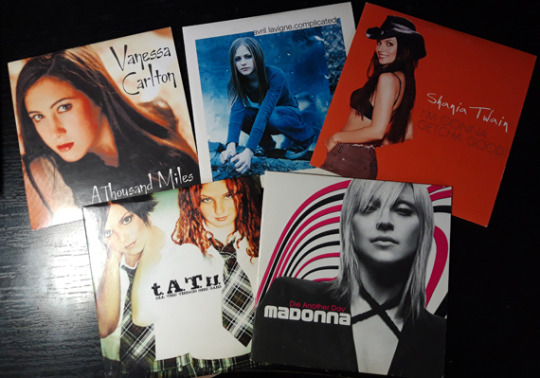
They’re all on this list, just to clarify.
15 - I’m Gonna Getcha Good (Shania Twain)
US: Not on the list / FR: #67
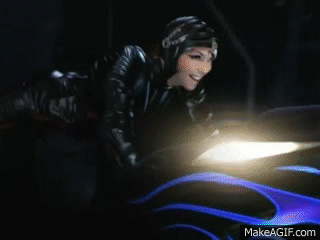
Well, that was quick. So yeah, I loved this song. The accent meant I couldn’t understand half of the lyrics, but it was still a ton of fun and a delight every time it was on the radio.
14 - Wherever You Will Go (The Calling)
US: #5 / FR: #53

I didn’t love this song that much at the time and only put it on one tape, but it really grew on my over the years. Yeah, it’s your standard 2000s pop-rock song, objectively, but I don’t know. It didn’t have to go that hard with its metaphors. I mean the guy is ready to follow that person into hell and turn back time if necessary. I really don’t know. It shouldn’t work so well but it does for me. Maybe it’s because I’m very literal-minded.
13 - Le Chemin (Kyo ft. Sita)
US: Not on the list / FR: #55
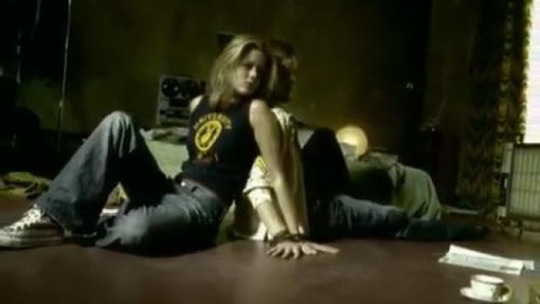
Basically: A Ma Place by Axel Bauer & Zazie from the previous honorable mentions of 2001, except with half the amount of Hetero Drama(tm) and a pop-rock flavour to make it more palatable.
The first hit of a band it would very quickly be super cool to hate in my country (and I do mean very quickly, like a year or so) because everyone (including me, mind you) thought their lyrics were a bit too cringy even for pop-rock songs.
Doesn’t mean I didn’t buy the album and listened the shit out of it for like two years, though. The saddest part is that my favorite single from it by far, Je Cours (”I Run”), isn’t elligible for any list. Dammit.
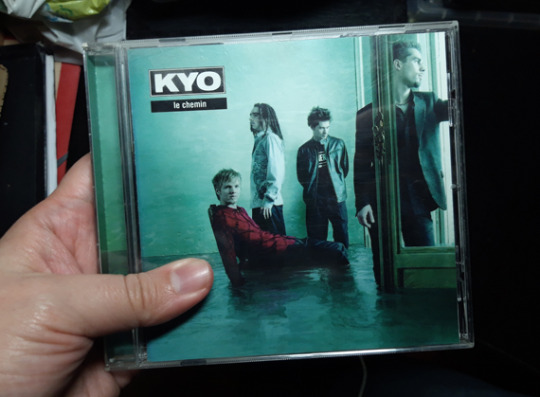
12 - Murder On The Dancefloor (Sophie Ellis-Bextor)
US: Not on the list / FR: #26
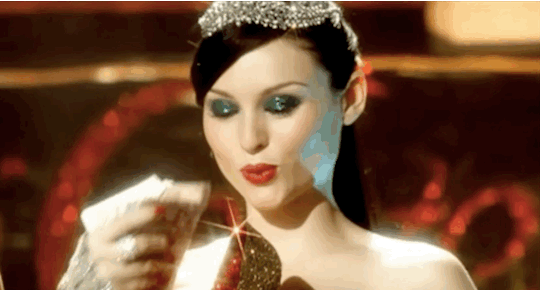
This was a huge hit in Europe and somehow I thought it had reached the US, but apparently it didn’t. That’s a shame.
Also, overplay didn’t manage to kill it for me and that’s impressive.
11 - Complicated (Avril Lavigne)
US: #11 / FR: #83

Loved it, bought the single, loved it even more, and then one of my uncles sent me the album for christmas, and all was nice and good in the world.
For the record, I thought Sk8er Boi was one of the worst songs on the album (my favorite was My World), and I still dislike this particular song to this day, so this is why it’s nowhere to be found here.
10 - Don’t Let Me Get Me (Pink)
US: #36 / FR: Not on the list
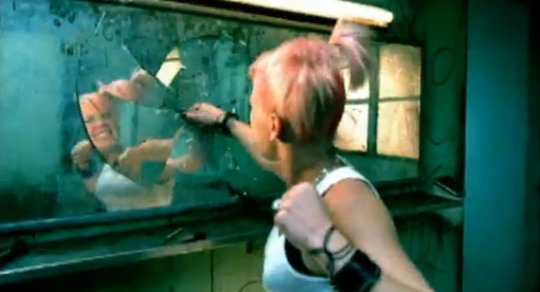
You already know that because of the honorable mentions, but yeah, I loved Pink. This was the second album I decided I had to save money for months to acquire instead of just a single and which my parents would probably find acceptable. And this song is the best and it kicks some serious ass, on top of being full of self-loathing and extremely relatable at the time ("everyday I fight a war against the mirror, can't take the person staring back at me"? "I wanna be somebody else"?? Big, big dysphoria mood right there).

No regrets, baby.
9 - Hands Clean (Alanis Morissette)
US: #95 / FR: Not on the list

In just about every list I’ve made so far, there’s one song which makes me think “if I had better taste, this would be much higher”. This is one of these songs. Still love it, still put it on a tape and burned it on a cd. I found the cd in question again yesterday while making this list and it contains, in that exact order: Visage, Evanescence, Kyo, Orchestral Manoeuvres In The Dark, Talk Talk, Scatman John, Sophie Ellis-Bextor, Shania Twain, INXS, Freur, Alizée, Linkin Park and this exact song by Alanis Morissette. It’s a great little time-capsule of my debatable tastes.
8 - Die Another Day (Madonna)
US: Not on the list / FR: #86
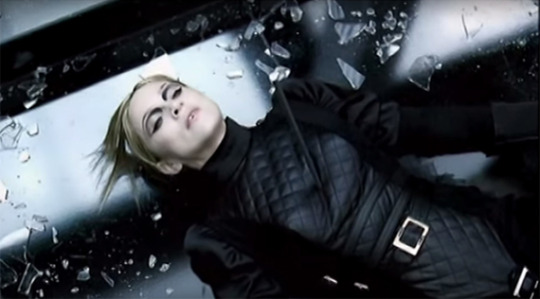
This has the same kind of weird, disjointed beat as Music, but it sounds much more aggressive and sinister. This dropped right when I started to have real problems at school, so it’s a bit difficult for me to listen to it nowadays without having unpleasant flashbacks at the same time, which is why it’s so low on the list even though I listened to it on a loop back in the day. It might be a subpar James Bond theme, and might have dumb lyrics (god the Sigmund Freud line sdfghjhgfdfg), but on its own? It’s great.
Also I loved the music video. My mother, obviously, hated it, which only made me like it more, because, I mean, obviously it did. That’s how it works when you’re 14.
Speaking of which.
7 - Without Me (Eminem)
US: #21 / FR: #11

By that point, it was becoming pretty clear that I would never be able to buy the music I wanted if my parents disapproved of it, so I had to be sneaky and buy every, uh “debatable” single with a second more acceptable single to hide the first one. The one I bought alongside this one was a cover of Désenchantée, sung by Kate Ryan.
Success.

It is, in fact, less good than The Real Slim Shady, and I could only understand about one third of the lyrics, but still. I listened to it a loooooot. Because I actually had that single and not the other one which it was basically referencing to the point of self-parody. And just like the other one, I obviously don’t endorse all the lyrics, and the beat is great.
6 - All the Things She Said (Tatu)
US: Not on the list / FR: #12
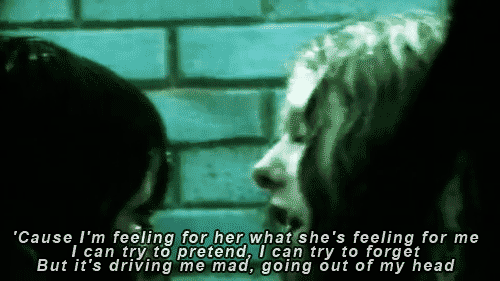
Just like Die Another Day this one is a bit difficult to listen to nowadays for me but it’s a monster of a hit nonetheless. Have to say, though: I listened to Not Gonna Get Us even more, which means THAT one is even more linked to bad memories, to the point of basically being unlistenable because it triggers a literal fight-or-flight response with me. Not kidding in the slightest. Still love it though.
5 - J’ai Demandé à la Lune (Indochine)
US: Not on the list / FR: #4

This is one of my least favorite hit songs from Indochine. It’s still #5 on a list where I had to keep 15 entries instead of 10. This is because almost no other song I really really like from them will ever be elligible for these lists and if I can’t put a single Indochine song somewhere, especially from the Paradize album, I will have to punch a wall, dammit.
So here. Have the one in which the guy asks the moon if his significant other still loves him and where the moon answers “dude it’s not my problem”.
I love them and Paradize is an absolute monster of an album which rightfully made them relevant again, from new wave sensations of the 80s to favorite mainstream band for every young French punk/goth kid ever in the 2000s. This is not a diss, by the way, considering I was very clearly in that core demographic. Especially if you look at the top three I made for that year (and for the next one but let’s not get ahead of ourselves).
4 - A Thousand Miles (Vanessa Carlton)
US: #6 / FR: #51
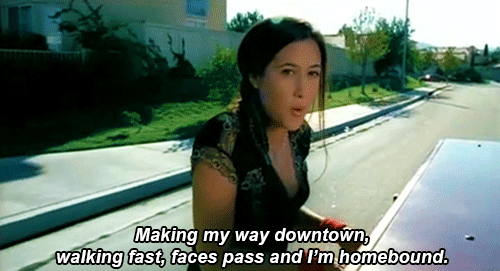
Yeah yeah, you knew this was coming when you saw that pic of the first singles I bought, and you can start laughing now. I know it’s basically a meme now (and a good one, mind you), but sometimes, songs are remembered for more than one reason, and you have to admit that one is still great on its own. I listened to it SO. MUCH. Especially before everything started to go wrong for me that year, so basically this is the sound of “how things should have been”, and it’s so pleasant and nice to listen to it even today. It’s no longer on my mp3 player, but, no joke, I think it stayed on it from the day I bought my first mp3 player to something like 2017. Is it an indicator of quality or yet another indicator of my debatable taste? Probably both.
In any other year, there would be a clear #1 either towering above the other songs or just slightly ahead of the rest. 2002 was so good I can’t, for the life of me, decide which of these next three songs is the best one, even subjectively, in a “hey I like this one a little bit more” kind of way.
So I’m ranking the top 3 according to the lengths I went to to listen to each of these songs at the time.
Let’s go.
3 - C’est Une Belle Journée (Mylène Farmer)
US: Not on the list / FR: #46

This is what I’d call the Last Great Mylène Farmer Song. Oh she was still making music, pretty great music, in fact, after that. She’s still making decent stuff nowadays, from time to time. But in my opinion, it’s all downhill from there.
Still. This kickstarted my obsession with her at the time, because someone (I still have no idea who that was) was foolish enough to buy me the cd for Christmas. This is also why it’s #3 and not higher; I didn’t have to work at all to listen to it.
So... This is a song about killing yourself, disguised as a bouncy energetic pop tune. And it works horribly well. It’s very vaguely sinister but if you don’t listen to it very closely, it’s nearly impossible to notice what it’s actually about (translation here), and it charted super high and for a super long time without any controversy in its wake.
As I said: all downhill from there, because... how do you even top this?
2 - Lose Yourself (Eminem)
US: #63 / FR: Not on the list

You probably guessed this was coming. I’m not sure what the consensus for the “best Eminem hit song” is nowadays, but that one has to be pretty high on the list. And it’s also kind of a meme because of the spaghetti line, I know, but still, quality, man. The most important thing about it in the context of this list is that it was juuuuust slow enough to allow me to understand most of the important parts with my still-limited English, and I loved the little story it told. I remember trying to put it on a tape for days and waiting for it to pop up on the radio and instantly pressing Record after the first note.
And of course I wanted to see 8 Mile and I couldn’t, but a few months later, the local book/dvd/music store, which had screens broadcasting scenes from new stuff they were selling, had a screen with a few battle rap scenes from 8 Mile on it, and once I noticed I stood in front of the screen for a long time in silent admiration. What can I say, I was an angry little thing, and seeing angry people fighting each other in ways where no-one gets hurt was very satisfying and cathartic.
1 - In the End (Linkin Park)
US: #7 / FR: Not on the list

The music video had hilariously bad cgi even at the time, just to clarify. But yeah, that sound right there had the perfect balance of color, energy, sadness and anger to be the hit of the year for me back then. And I could understand nearly all the lyrics! I. Loved it. The local library had Hybrid Theory and I listened to it so. MUCH (my favorite song on it was actually One Step Closer (singing CAUSE I’M ONE-STEP-CLOSER-TO-THE-EDGE, ANDI’MABOUTTOBREAK felt great) and I thought Crawling was a bit embarrassing). Thank god that library didn’t have fines if you returned your stuff after the due date because I had to wait until I was able to make a copy of it first. The “parents-proof” “”cryptic”” label I wrote on said copy wasn’t particularly cryptic, though, and I’m gonna share it with you right now because that’s kind of funny.

So what do you do when you’re 14, pretty sure you understood the whole song, are finally able to listen to the whole album, burn it on a cd, and listen to it way too often? You write down the lyrics, painstakingly, with a fountain pen, in a small notebook where you try to write down the lyrics of every single song you love & can understand entirely. That’s what you do. Of course.

When I stopped doing that in 2007, there were two notebooks like that. I lost one of them, apparently, but the one I was able to find already had 63 songs in it. I finally had my own internet access later that year and I could find all the lyrics I wanted whenever I wanted, and I stopped doing that once and for all.
But it helped me get a lot better with English, so in the end, it doesn’t even matter.
So yeah, In the End?


Loved it and loved that band. I still do.
Next up: wow, “all edge no point”, uh?
#Johannes’ bad not good pretty terrible music lists#music#long post#eye contact tw#suicide ideation tw
10 notes
·
View notes